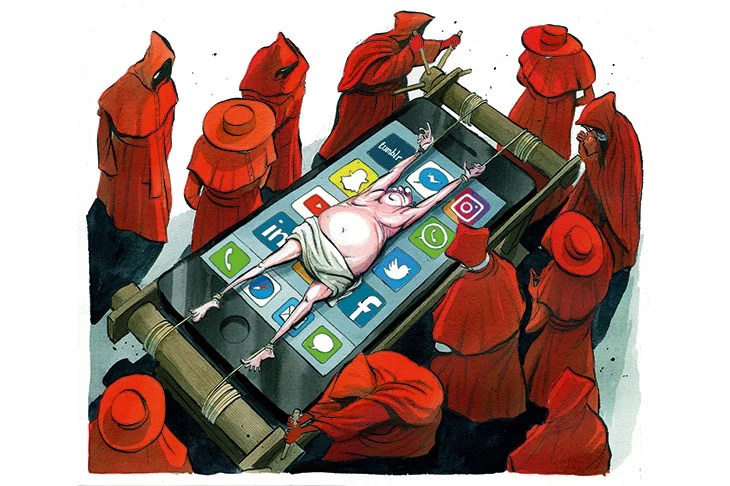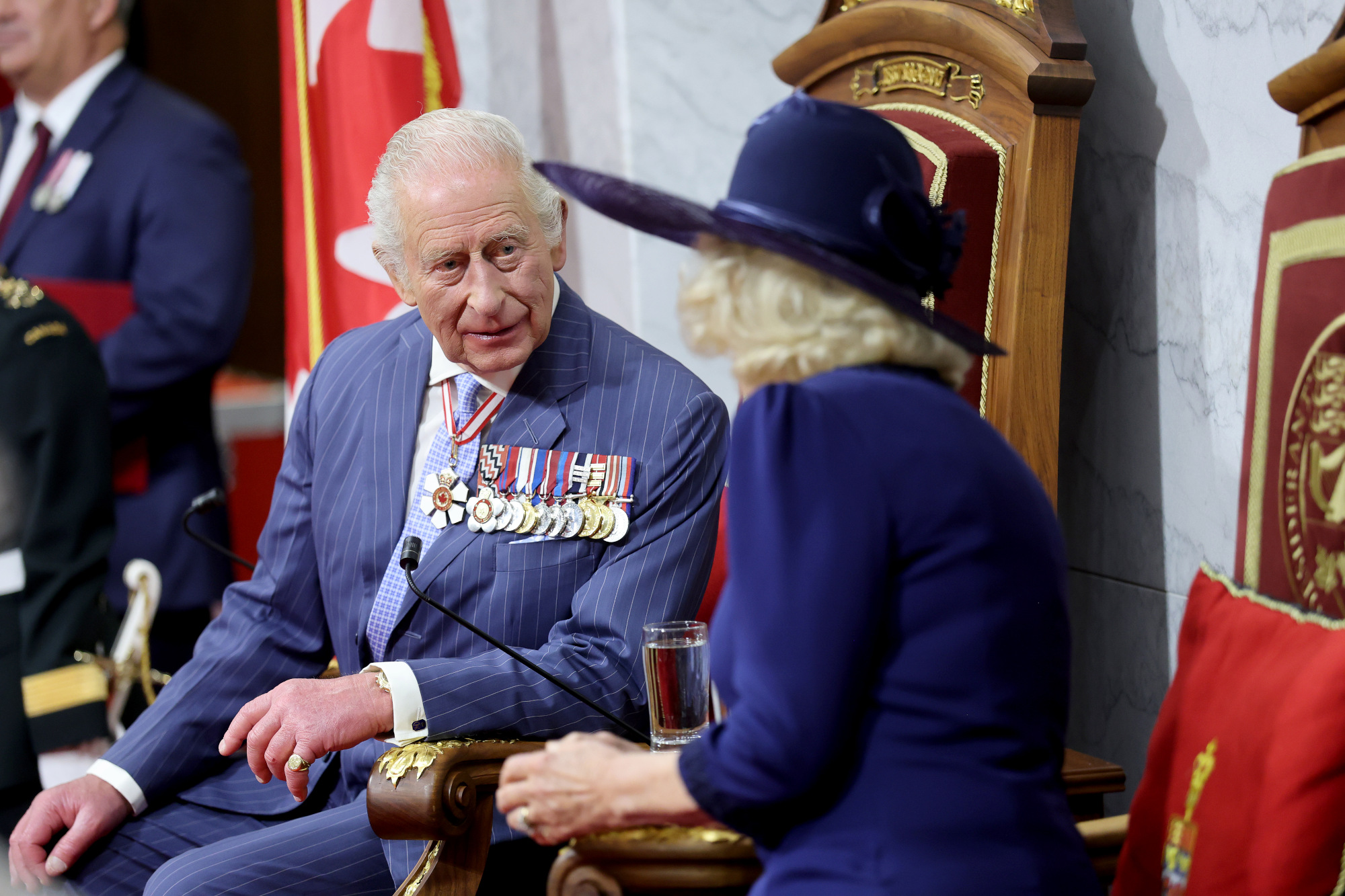Canadians pride themselves on their ultra-progressive reputation. In contrast to the gun-loving, war-mongering, big government-hating, get-off-my-lawn-you-commie reputation of Americans, Canadians see themselves as North America’s kinder, gentler half. But that smug politeness has seen us sleepwalk into an Orwellian nightmare.
We have never felt much of an affinity to free speech in Canada — saying what you really think is mean and individual rights are for people who don’t have a feminist drama teacher as prime minister. So it’s perhaps unsurprising that a new bill proposing to regulate speech on the internet is being pushed by our politically center-left Liberal party.
Bill C-10, the Broadcasting Act reform bill, aims to treat platforms like YouTube and Facebook as broadcasters, meaning that user-generated content could be subject to Canadian Radio-television and Telecommunications Commission (CRTC) regulation. Until recently there had been an exclusion in the Act for social-media sites, protecting individuals from being subject to CRTC hearing. Three weeks ago, the Liberal government removed Section 4.1, the clause excluding user-generated content. The bill will include the creation of a new regulatory body, which will be responsible for enforcing the government’s definition of hate — and requiring online platforms to take down content on that basis.
As if Big Tech giants were not already controlling access to information, as well as the speech of millions of individuals, via censorship and algorithm manipulation, now Canadians may be subject to the biases and preferences of the same Liberal party that brought us Bill C-16, Canada’s gender identity legislation. The passage of C-16 ensured women’s spaces and sex-based rights could no longer be protected. It demanded Canadians accept the irrational idea that a person can be ‘born in the wrong body’ and, should God have made such an accident, that person can simply announce a switch. Thanks to Bill C-16, to insist that a man who identifies as a woman is still male is already viewed by many Canadians as illegal, or at very least a form of hate speech. I don’t doubt Bill C-10 will result in people like me being banned from saying as much online.
On Friday, heritage minister Steven Guilbeault insisted that the bill does not aim to target individual speech, but rather to regulate wealthy companies like YouTube and Netflix. If this is true, you might wonder why Section 4.1 was removed. During an interview on the Cable Public Affairs Channel, Guilbeault was pressed on this issue. He said that ‘of course’ the bill doesn’t intend to scrutinize content produced by individuals, before adding ‘the concern is that there are people who believe that there should be no laws when it comes to the internet’. This, Guilbeault says, is a position he disagrees with, explaining that he thought ‘there needs to be regulation’.
So, let’s get this straight: definitely there’s no way the Liberals are planning to police online speech…but for sure they think online speech needs to be policed. Also they mysteriously removed the clause protecting user-generated content posted by individuals.
In an interview with CTV’s Question Period, Minister Guilbeault elaborated, saying that the regulator could have powers related to the ‘discoverability of online content’ for people with large audiences, who are ‘generating a lot of money on social media’ and are ‘acting like broadcasters’.
In other words, if the Canadian government doesn’t like the content you’re producing, they want to ensure you can’t make a living off it and also that people don’t see your content.
Canada’s tilt towards totalitarianism has been demonstrated rather undeniably via the ongoing COVID restrictions, which somehow continue to get evermore oppressive despite the fact Canadians have been incredibly compliant and millions have now been vaccinated. The Liberal party has already violated the Charter of Rights and Freedoms in restricting freedom of religion, expression, peaceful assembly and association, as well as mobility rights. So hey, what’s one more violation? Rights are made to be broken amirite?
On Monday, MPs on the House of Commons heritage committee agreed to pause their review of the bill while the Department of Justice determines whether or not it violates the Charter.
The Conservative party of Canada has been alone in its attempts to fight the bill, which unfortunately reinforces the hard-to-swallow reality that it is the left who has taken up censorship efforts, supported violations of rights and freedoms and embraced authoritarianism — something most of us who long viewed ourselves as progressive would likely never have anticipated.
As someone who was once proud to be a Canadian leftist, I am appalled at what my country has become and what citizens are complying with. Canadians may have a strong healthcare system, but we don’t have much else. We have lost sight of what matters in a healthy society and democracy.
Your rights — freedom of expression, speech, assembly, and mobility — are everything. They are not to be traded in during times of fear or crisis. A right is a right — that’s the whole point. If a right can be simply taken away, it ceases to be a right. Once your rights are gone, it’s unlikely you’ll get them back.
Canadians need to remind themselves that the government works for them, not the other way around. You voted these people in — you gave them power, and you can take it away. The Liberal government has demonstrated a complete lack of respect for its citizens — now it threatens to remove our right to speak out against dominant viewpoints and state-approved propaganda. At what point will you stand up?
Meghan Murphy is a Canadian writer exiled in Mexico and host of The Same Drugs.

























